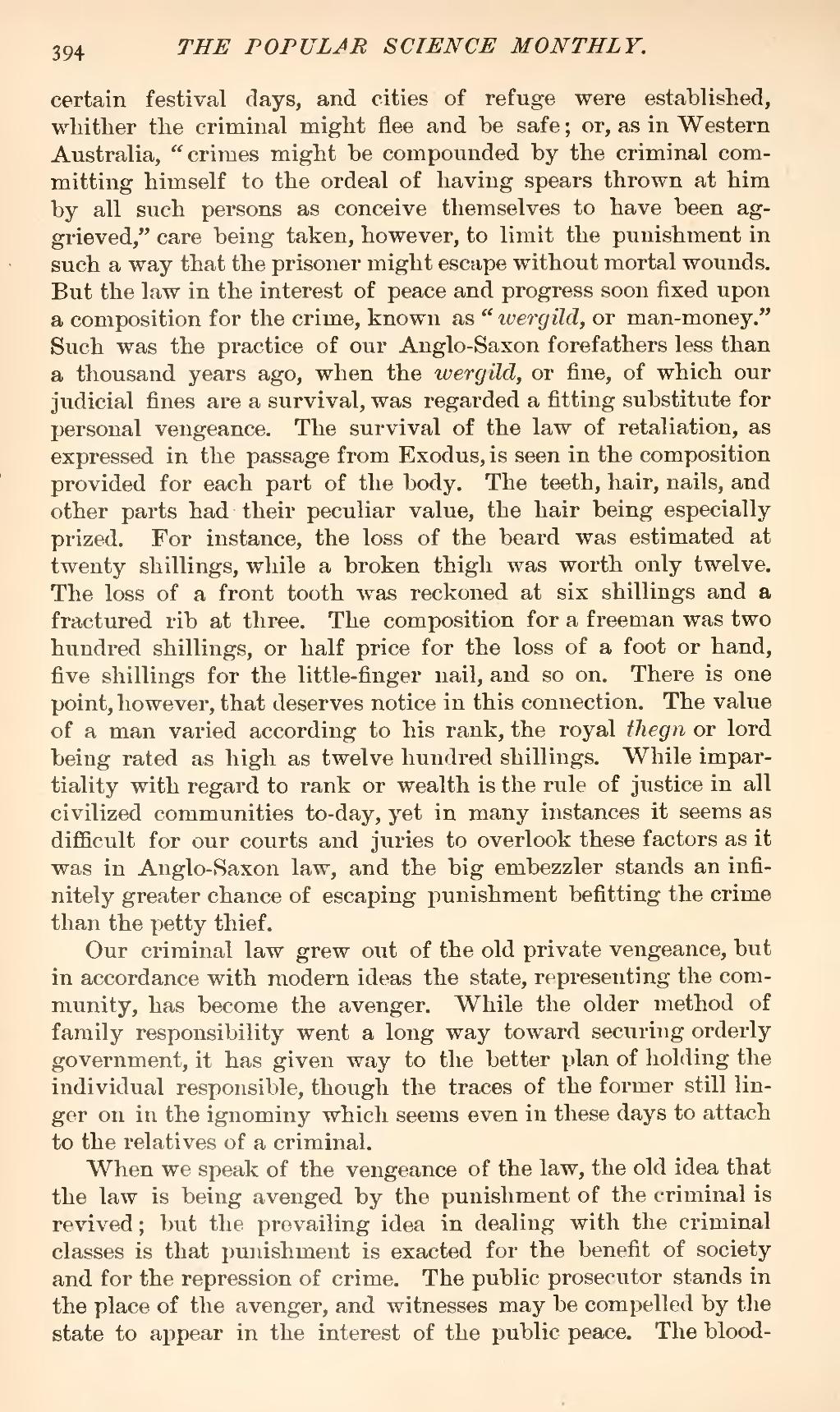certain festival days, and cities of refuge were established, whither the criminal might flee and be safe; or, as in Western Australia, "crimes might be compounded by the criminal committing himself to the ordeal of having spears thrown at him by all such persons as conceive themselves to have been aggrieved," care being taken, however, to limit the punishment in such a way that the prisoner might escape without mortal wounds. But the law in the interest of peace and progress soon fixed upon a composition for the crime, known as "wergild, or man-money." Such was the practice of our Anglo-Saxon forefathers less than a thousand years ago, when the wergild, or fine, of which our judicial fines are a survival, was regarded a fitting substitute for personal vengeance. The survival of the law of retaliation, as expressed in the passage from Exodus, is seen in the composition provided for each part of the body. The teeth, hair, nails, and other parts had their peculiar value, the hair being especially prized. For instance, the loss of the beard was estimated at twenty shillings, while a broken thigh was worth only twelve. The loss of a front tooth was reckoned at six shillings and a fractured rib at three. The composition for a freeman was two hundred shillings, or half price for the loss of a foot or hand, five shillings for the little-finger nail, and so on. There is one point, however, that deserves notice in this connection. The value of a man varied according to his rank, the royal thegn or lord being rated as high as twelve hundred shillings. While impartiality with regard to rank or wealth is the rule of justice in all civilized communities to-day, yet in many instances it seems as difficult for our courts and juries to overlook these factors as it was in Anglo-Saxon law, and the big embezzler stands an infinitely greater chance of escaping punishment befitting the crime than the petty thief.
Our criminal law grew out of the old private vengeance, but in accordance with modern ideas the state, representing the community, has become the avenger. While the older method of family responsibility went a long way toward securing orderly government, it has given way to the better plan of holding the individual responsible, though the traces of the former still linger on in the ignominy which seems even in these days to attach to the relatives of a criminal.
When we speak of the vengeance of the law, the old idea that the law is being avenged by the punishment of the criminal is revived; but the prevailing idea in dealing with the criminal classes is that punishment is exacted for the benefit of society and for the repression of crime. The public prosecutor stands in the place of the avenger, and witnesses may be compelled by the state to appear in the interest of the public peace. The blood-

